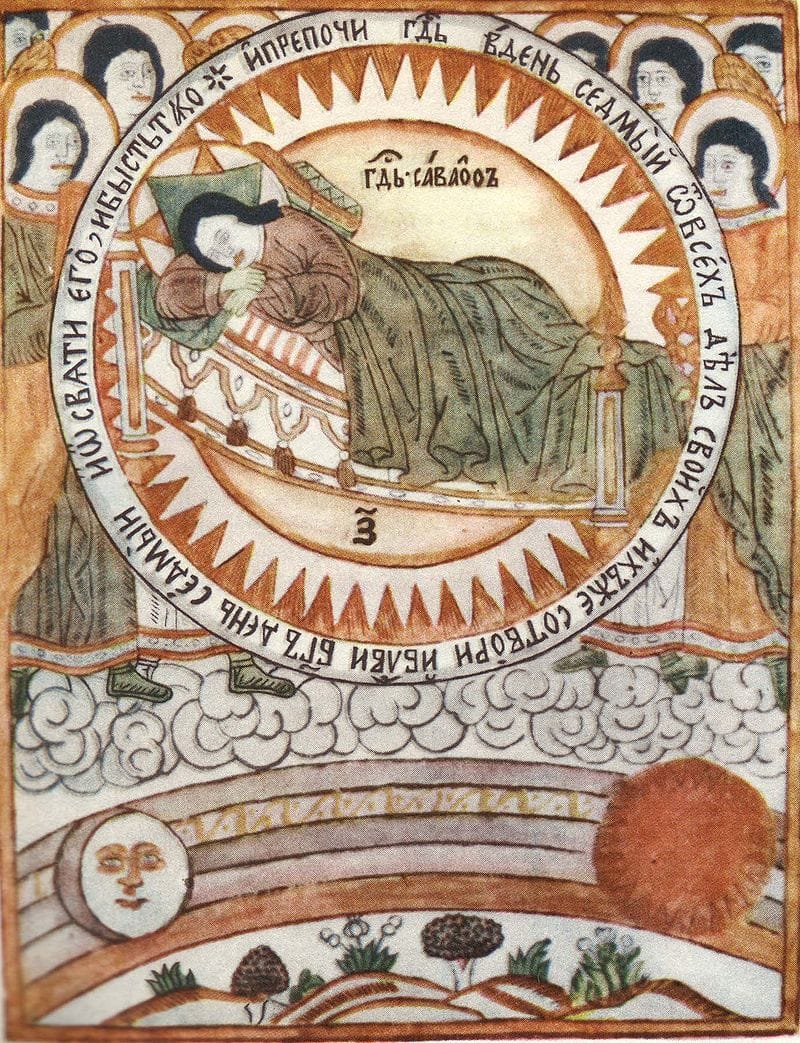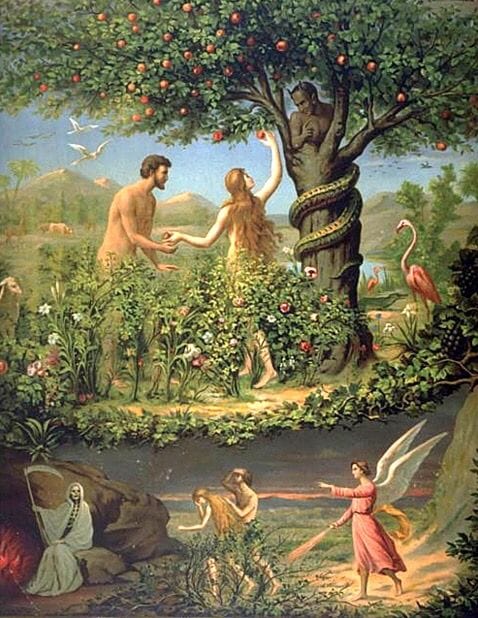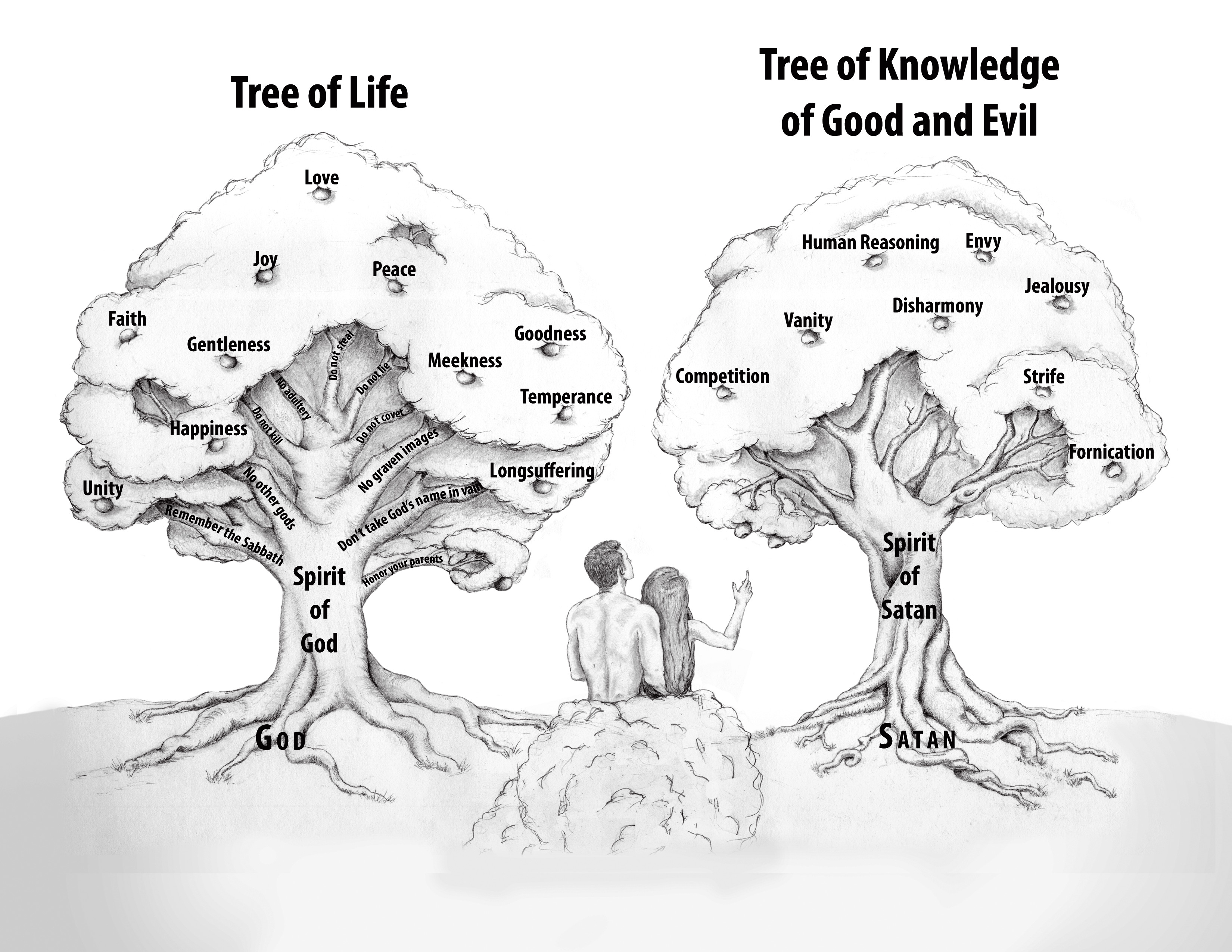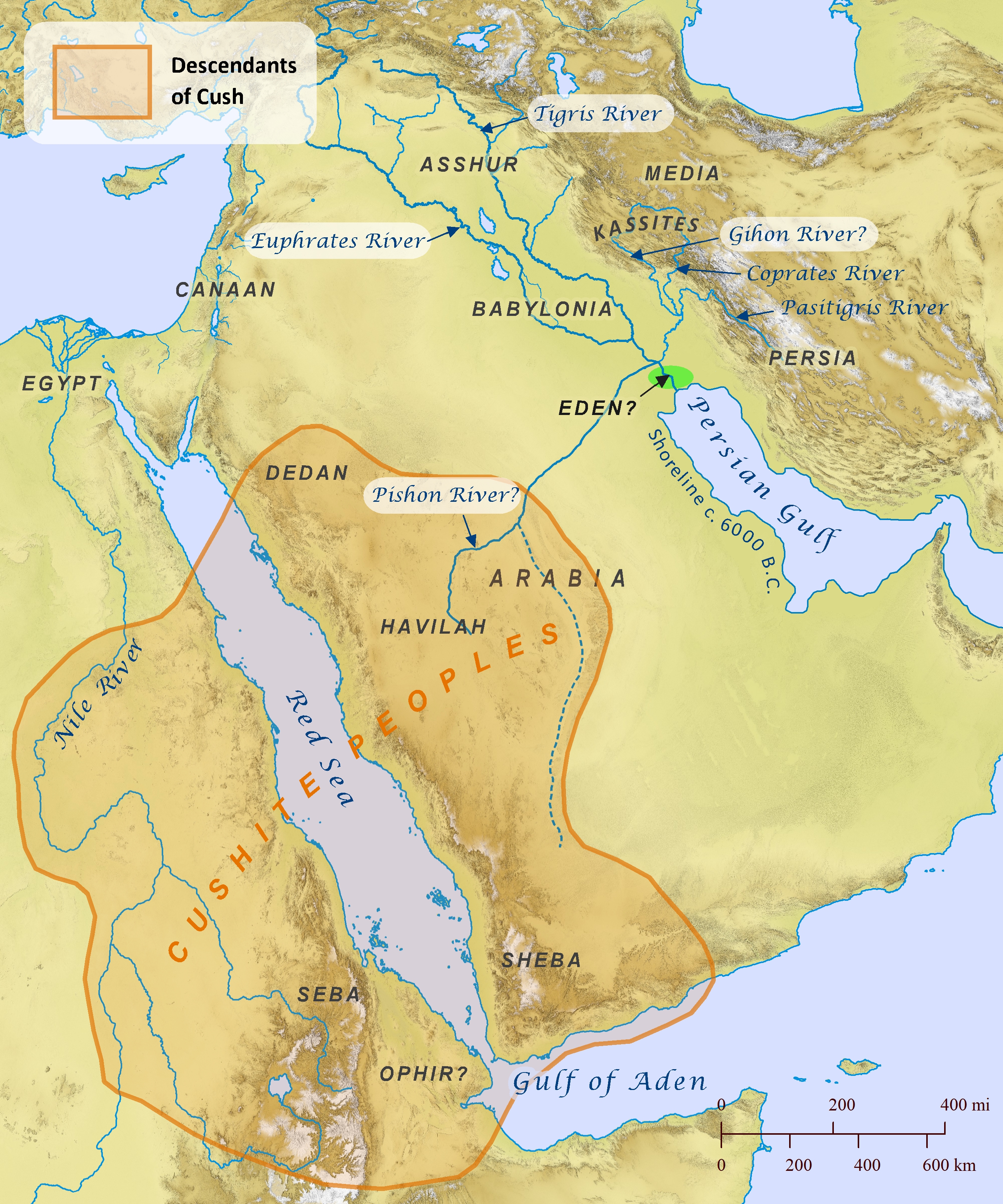- The Morning Mercy
- Posts
- Journey Through Genesis
Journey Through Genesis
God's Rest and the Garden of Eden
Introduction
In our first two studies, we explored God's magnificent work of creation, focusing on the formation of the heavens, earth, plants, animals, and ultimately, humanity. This week, we turn to Genesis 2:1-17, which presents two profound theological themes: God's sacred rest on the seventh day and the special garden He prepared for Adam. This passage reveals not just historical details about creation but deep spiritual truths that continue to shape our understanding of work, rest, and our relationship with God.
Genesis 2 provides a more detailed account of humanity's creation and early experiences, zooming in on elements briefly mentioned in Genesis 1. Here we see God's intimate involvement with humankind, establishing patterns that would define human existence for all time.
Scripture: Genesis 2:1-17
1 Thus the heavens and the earth were completed in all their vast array.
2 By the seventh day God had finished the work he had been doing; so on the seventh day he rested from all his work.
3 Then God blessed the seventh day and made it holy, because on it he rested from all the work of creating that he had done.
4 This is the account of the heavens and the earth when they were created, when the LORD God made the earth and the heavens.
5 Now no shrub had yet appeared on the earth and no plant had yet sprung up, for the LORD God had not sent rain on the earth and there was no one to work the ground,
6 but streams came up from the earth and watered the whole surface of the ground.
7 Then the LORD God formed a man from the dust of the ground and breathed into his nostrils the breath of life, and the man became a living being.
8 Now the LORD God had planted a garden in the east, in Eden; and there he put the man he had formed.
9 The LORD God made all kinds of trees grow out of the ground—trees that were pleasing to the eye and good for food. In the middle of the garden were the tree of life and the tree of the knowledge of good and evil.
10 A river watering the garden flowed from Eden; from there it was separated into four headwaters.
11 The name of the first is the Pishon; it winds through the entire land of Havilah, where there is gold.
12 (The gold of that land is good; aromatic resin and onyx are also there.)
13 The name of the second river is the Gihon; it winds through the entire land of Cush.
14 The name of the third river is the Tigris; it runs along the east side of Ashur. And the fourth river is the Euphrates.
15 The LORD God took the man and put him in the Garden of Eden to work it and take care of it.
16 And the LORD God commanded the man, "You are free to eat from any tree in the garden;
17 but you must not eat from the tree of the knowledge of good and evil, for when you eat from it you will certainly die."
Verse Breakdown
The Completion of Creation (verses 1-3)
The first three verses serve as both a conclusion to the creation account in Genesis 1 and an introduction to an important theological concept: sacred rest. "Thus the heavens and the earth were completed" indicates the finality and perfection of God's creative work. Nothing was missing; creation was complete in every detail.
The repetition of God's rest in verses 2-3 emphasizes its importance. The Hebrew word translated as "rested" is "shabat", from which we get the word "Sabbath." It doesn't mean God was tired and needed recuperation; rather, it means He ceased or stopped His work of creation because it was finished and perfect.
God then does something remarkable with this seventh day—He blesses it and makes it holy. This is the first thing in Scripture that is explicitly designated as "holy," setting a pattern for understanding sacred time and space throughout the Bible.
A New Beginning (verses 4-7)
Verse 4 introduces what seems to be a second creation account, but it's better understood as a more detailed focus on humanity's creation. The phrase "This is the account" (Hebrew: "toledot") is used throughout Genesis to introduce new sections.
In these verses, we see God's intimate involvement in creating humanity. Rather than the majestic commands of Genesis 1 ("Let there be..."), here God "forms" man from the dust, like a potter shaping clay, and breathes life into him personally. This depicts a God who is closely involved with His creation, especially humans.
The Garden of Eden (verses 8-14)
God doesn't just create humans; He prepares a perfect environment for them. Eden (meaning "delight" or "pleasure" in Hebrew) was specifically designed as humanity's first home. The garden's description—filled with trees "pleasing to the eye and good for food"—shows God's provision wasn't merely functional but also beautiful.
The geographical details about the four rivers present Eden as a real historical place, though pinpointing its exact location is difficult due to changes in geography since the flood. The descriptions of gold and precious stones emphasize the garden's richness and value.
Man's Purpose and Limitation (verses 15-17)
These verses reveal both man's purpose and the one limitation God placed on him. Adam was put in the garden "to work it and take care of it," showing that meaningful work was part of God's original design for humanity, even before the fall.
The prohibition regarding the tree of knowledge of good and evil established that while humans had tremendous freedom ("You are free to eat from any tree"), they were still under God's authority. This single restriction provided the opportunity for true obedience motivated by love rather than compulsion.
Theological Insights: God's Sabbath Rest
God's rest on the seventh day wasn't due to fatigue but signified the completion of His creative work. The Hebrew word "shabat" (rest) means to cease or stop an activity. This divine rest established a pattern that would later be codified in the Sabbath commandment (Exodus 20:8-11). Three aspects make this rest significant:
|  Illustration depicting the concept of sacred rest |
In Christian theology, the concept of rest takes on additional meaning through Jesus Christ, who declared, "Come to me, all you who are weary and burdened, and I will give you rest" (Matthew 11:28). Hebrews 4:9-11 teaches that God's rest on the seventh day points to the spiritual rest believers find in Christ—both now through faith and ultimately in eternity.
Sabbath in Different Christian Traditions
Christians have understood and practiced Sabbath observance differently throughout history:
Seventh-day observance: Some denominations (like Seventh-day Adventists) maintain Saturday as the Sabbath.
Lord's Day observance: Many Christians observe Sunday as "the Lord's Day" commemorating Christ's resurrection.
Sabbath principles: Others focus less on a specific day and more on the principles of regular rest and worship.
The Garden of Eden and Its Special Trees
 Artistic representation of the Garden of Eden | The Garden as Sacred SpaceEden represents the ideal dwelling place where God and humans lived in harmony. The garden wasn't just a place of natural beauty but a sacred space where God would walk and commune with Adam and Eve (Genesis 3:8). Many scholars have noted parallels between Eden and later sacred spaces in the Bible, particularly the tabernacle and temple. All were places of God's presence, featured gold and precious materials, and required care by appointed guardians. The four rivers flowing from Eden suggest the garden was on elevated ground, with life-giving waters flowing outward to nourish the world. This imagery appears later in Ezekiel 47:1-12 and Revelation 22:1-2, where rivers of life flow from God's dwelling place. |
The Significant Trees
The Tree of LifeThis tree appears to have had the capacity to sustain eternal physical life, as suggested by Genesis 3:22. Its presence in Eden symbolizes God's intention for humans to live forever in fellowship with Him. The tree of life reappears in Revelation 22:2, where it grows in the New Jerusalem and "the leaves of the tree are for the healing of the nations." This suggests the restoration of what was lost in Eden. Many Christians see the tree of life as ultimately pointing to Christ himself, who offers eternal life to all who believe in Him (John 3:16, 6:35). | The Tree of the Knowledge of Good and EvilThis tree represented moral autonomy—the desire to determine good and evil independently of God. By forbidding its fruit, God established a boundary that allowed for true freedom through loving obedience. The prohibition wasn't about keeping knowledge from humans but protecting them from the devastating consequences of moral independence from God. The tree's presence reminds us that true freedom is found within God's boundaries, not in rebellion against them. |

Illustration depicting the Tree of Life and Tree of Knowledge of Good and Evil
Location of Eden: Biblical Geography
The Bible provides geographical markers for Eden, mentioning four rivers: the Pishon, Gihon, Tigris (Hiddekel), and Euphrates. While the Tigris and Euphrates are well-known rivers in Mesopotamia, identifying the Pishon and Gihon is challenging.
Various theories place Eden in:
Mesopotamia (modern Iraq), where the Tigris and Euphrates flow
The Armenian highlands, near the headwaters of these rivers
The Persian Gulf region, now submerged underwater
The geographical details are likely affected by the global flood described in Genesis 7-8, which would have drastically altered the earth's landscape.

A map showing potential locations for the Garden of Eden based on biblical descriptions
Family Teaching Point
Discussion Starters
God's Rest: Why did God rest on the seventh day? How can our family practice meaningful rest that honors God?
Work in Eden: Adam had work to do even in paradise. How does this change how we think about work? Is work a punishment or a blessing?
Special Trees: Why do you think God put a forbidden tree in the garden? What does this teach us about choices?
Beautiful Garden: God created beauty in Eden. How can we appreciate and care for the beauty in God's creation today?
Family Activities
Create a Mini-Garden: Plant small seeds in cups and care for them together, discussing Adam's role in tending the garden. Talk about the responsibility and joy of caring for God's creation.
Sabbath Rest Box: Create a special box containing items that help your family rest meaningfully—perhaps board games, special books, or art supplies that are only used during your family's designated rest time.
Two Trees Craft: Draw or craft two trees representing the Tree of Life and Tree of Knowledge. Use this as a visual aid to discuss making good choices that lead to life versus choices that lead away from God.
Garden Scavenger Hunt: Create a nature scavenger hunt in a local park or garden, encouraging children to appreciate the beauty and diversity of God's creation.
Memory Verse
"By the seventh day God had finished the work he had been doing; so on the seventh day he rested from all his work." — Genesis 2:2
Weekly Prayer
Creator God,
We marvel at the perfect world You made, where You walked with Adam in the cool of the day. Thank You for creating a world of beauty and abundance, revealing Your generous heart. As You rested and delighted in Your creation, teach us to find true rest in You.
Lord, we confess that we often resist Your boundaries, just as Adam and Eve were tempted to eat from the forbidden tree. We seek to determine good and evil for ourselves rather than trusting Your wisdom. Forgive us and help us to find freedom in Your loving commands.
Help us to work diligently as Adam did in tending the garden, finding purpose in the tasks You've given us. Yet teach us also to rest, to cease our striving, and to remember that our value comes not from what we produce but from being loved by You.
In this busy world, show us how to create gardens of peace where we can meet with You. May our homes and churches be places where Your presence dwells, where spiritual life flourishes, and where all are welcomed to taste and see that You are good.
In Jesus' name, Amen.
Application
Embracing Sacred RestIn our hyperconnected, always-on world, the concept of Sabbath rest is more countercultural—and perhaps more necessary—than ever. Consider these practical ways to incorporate sacred rest:
| Finding Purpose in WorkAdam's assignment to tend the garden reminds us that work was part of God's original plan for humanity, not a result of the fall. This week:
|
Living Within Loving Boundaries
The tree of knowledge of good and evil reminds us that God sets boundaries for our benefit. This week:
Identify an area where you might be resisting God's boundaries in your life
Consider how obedience to God's word actually leads to greater freedom
Remember that God's restrictions are always motivated by love
Share with a trusted friend or family member how you're seeking to honor God's boundaries
"The sabbath was made for man, not man for the sabbath." — Jesus (Mark 2:27)
God's pattern of work and rest, and His placement of both permission and prohibition in Eden, reveal His desire for our flourishing. As we align our lives with His design, we discover the life He intended for us from the beginning.
Kids Corner
God Makes a Special Garden
After God made everything, He looked at all He had created and said it was very good! Then on the seventh day, God rested. This doesn't mean God was tired. It means He finished His work of creating and took time to enjoy what He had made. God blessed this special day of rest.
God made a beautiful garden called Eden. It was full of colorful flowers, tasty fruits, and tall trees. Rivers flowed through the garden, watering all the plants. God put Adam, the first man, in this special garden to take care of it.
In the middle of the garden, God placed two important trees. One was called the Tree of Life. The other was called the Tree of the Knowledge of Good and Evil. God told Adam he could eat fruit from any tree in the garden except one—the Tree of the Knowledge of Good and Evil. God warned Adam that eating from this tree would bring death.
Adam had an important job in the garden. He wasn't supposed to just play all day! God wanted Adam to take care of the garden by watering the plants and keeping everything neat and beautiful. Adam's work was a special gift from God.
Activity: Color the Garden
Draw your own picture of what you think the Garden of Eden looked like. Include lots of beautiful plants, the two special trees, and the four rivers that flowed through Eden.
Memory Verse for Kids
"God blessed the seventh day and made it holy." — Genesis 2:3a
Resources for Further Study
Recommended Reading
Henri Nouwen, The Sabbath — A classic exploration of Sabbath meaning and practice
John Walton, The Lost World of Genesis One — Scholarly insights into the ancient Near Eastern context of Genesis
Eugene Peterson, Working the Angles — Reflections on Sabbath-keeping for spiritual renewal
Sandra Richter, The Epic of Eden — Helps readers understand Eden's significance throughout Scripture
Online Resources
Bible Project: Tree of Life — Visual exploration of this biblical theme
Got Questions: Why did God rest on the seventh day? — Exploration of Sabbath theology
Bible Mapper: The Garden of Eden — Biblical geography resource
Coming Next Week
Join us next week as we continue our Journey Through Genesis with Genesis 2:18-25, exploring the creation of woman and the establishment of marriage.
Preview reading: Genesis 2:18-25